Cricket is Pakistan’s alpha sport and it will bounce back
Things have gone south for the country’s cricket in recent times but all is not lost. With a few right steps, they can fall into place
Dr. Saad Shafqat
Guest Contributor
Dr Saad Shafqat is Professor of Neurology at Aga Khan University, in addition to being a published author, cricket columnist, and novelist. He has co-written Cutting Edge, the autobiography of Javed Miandad, published in 2003. His novel Breath of Death, a medical thriller, appeared in 2013.
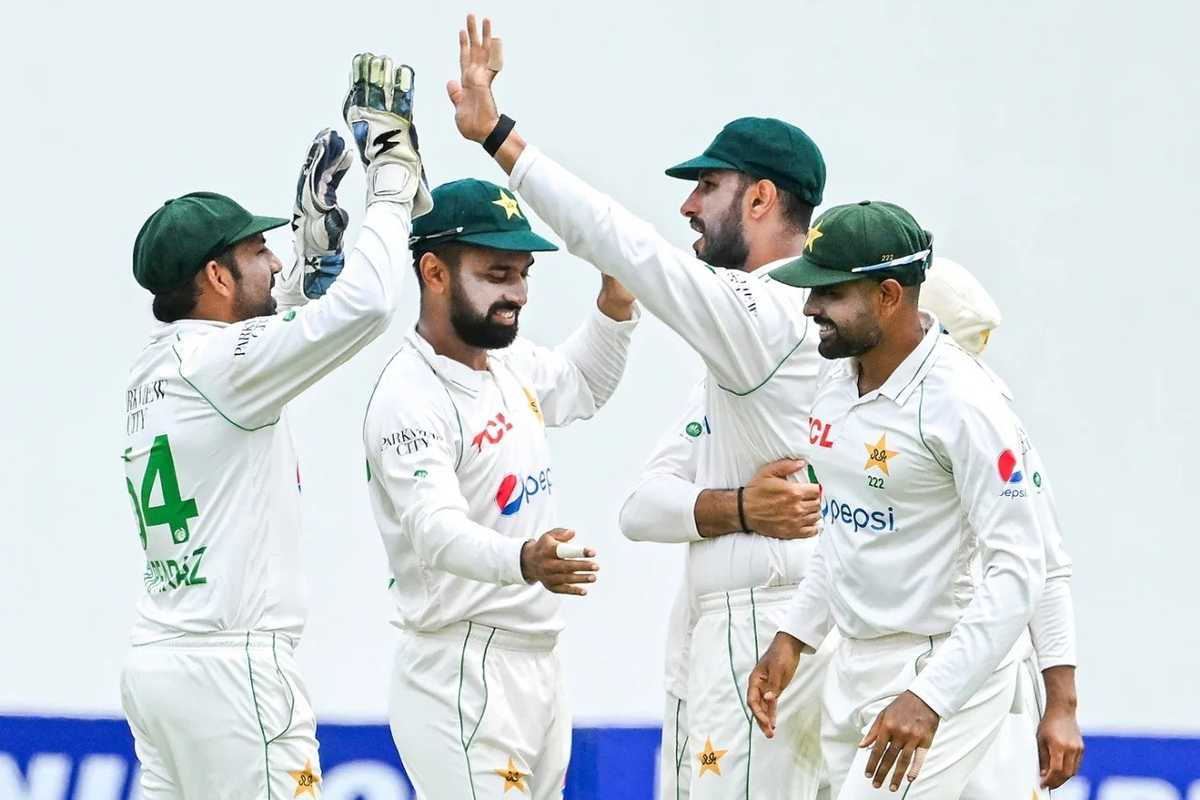
Pakistan's Shan Masood nailed a direct hit to run Nishan Madushka out during the second Test against Sri Lanka in Colombo in 2023.
AFP
Cricket in Pakistan is going through a lean stretch.
Not only has it been a while since we lifted a major ICC title in white-ball cricket, our home Test series record is also quite dismal. Yes, we did beat Sri Lanka 2-0 in an away Test rubber last summer, and we did get to the finals of the T20 world cup held in Australia in 2022; yet these are mere crumbs for a proud cricketing nation that has seen plenty of historic peaks, and which counts among its players some of the greatest names the game has ever seen.
Red is bad but so is white!
On the Test match front, you have to go back over three years to find a home Test win (February 2021 vs South Africa in Rawalpindi), and it’s been over half a decade since we won an away encounter against a premier opponent (May 2018, versus England at Lord’s). On top of this, there’s now the bitter pill of being clean-swept 2-0 in a home Test series against Bangladesh. For the Bangladesh team this is an historic achievement; but for Pakistanis this series loss is profoundly troubling.
Nor has the ODI record been too encouraging. Although Pakistan’s win/loss ratio in this format remains quite impressive, group-stage exits in the last two ODI world cups (2019 and 2023) pointedly undermine our relative success in bilateral ODI matches.
The real nightmare is that our embarrassments have really begun piling up of late. Losing the opening game of last summer’s T20 World Cup to USA, an associate-level team made up of weekend enthusiasts, was painful enough. Then came the heart-wrenching debacle versus India – at one point, Pakistan were 80/3, needing just another 40 from 36 balls against storied archrivals. In T20 cricket that should be a cakewalk, yet we ended up 6 runs short. Abject defeat in two home Tests to Bangladesh now lays wide open the depth of our cricketing rot for all to see.
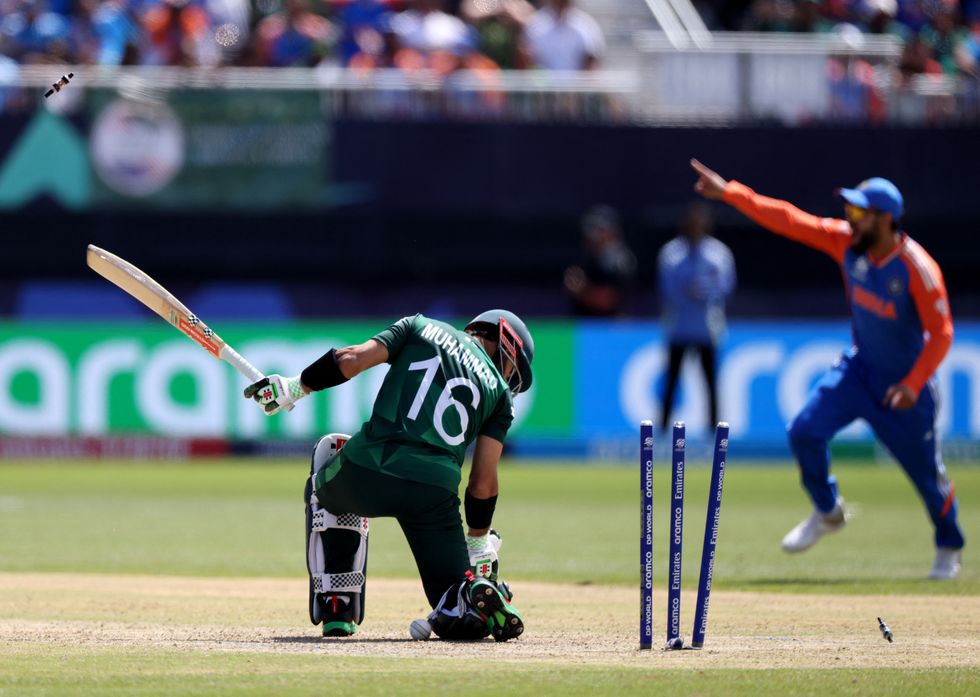
So, what’s gone wrong?
Naturally, several questions arise.
Is the ongoing slump a matter of cyclic fluctuations, or something more pervasive? What has happened to the fabled pipeline of raw talent that Pakistan has traditionally been known for? Where is the next Wasim Akram, the next Inzamam-ul-Haq, the next Saqlain Mushtaq? What are we doing wrong in terms of cricket’s administration and organization? Are there factors in the game’s international ecosystem that are keeping us from living up to our potential? Or could it be, perhaps, that Pakistani fans have become so spoiled from heady moments of yesteryears that our expectations are now unreasonable?
Has Pakistan’s well of talent dried up?
To be sure, Pakistan cricket does find itself facing multiple headwinds, and it’s not at all clear when the storms will abate. Certainly, there’s no denying that the talent cupboard looks threadbare.
Hardly any Pakistani cricketer today can command automatic selection into a frontline international team – in any format. You could perhaps make a case for Mohammad Rizwan – but it would take some convincing; it wouldn’t be automatic. Younis Khan was Pakistan’s last consistent batting match-winner, and he debuted a quarter of a century ago. Babar Azam has been Younis’s heir-apparent for quite sometime now, but his match-winning ability is still a question mark. No doubt he’s had a handful of great outings at the crease, but as they say one or two swallows do not a summer make.
Meanwhile Pakistan’s last truly world-class fast-bowling pair – Mohammad Asif and Mohammad Amir – ended up in prison, which is a whole other drama worthy of a Shakespearean tragedy. The spinning department too looks sorely impoverished, as the space vacated by the likes of Saeed Ajmal and Yasir Shah still remains to be filled. While a number of fresh faces have been tried over the last several seasons, none has secured an impactful foothold.
Is PCB the culprit?
Responsibility for this rather dry (and squandered) talent pool ultimately rests with the Pakistan Cricket Board. Unfortunately, that organization is still overseen by a handpicked (and therefore unaccountable) political appointee. Not only does this compromise merit, it also leaves the PCB at the mercy of Pakistan’s notoriously unstable political circumstances.
The result is a hodge-podge national cricketing setup with a domestic configuration that gets tweaked every season, coaches and support staff getting rotated like musical chairs, and grounds and facilities that remain mediocre at best. We are left with an overall lack of confidence in the system’s ability to identify and nurture the best that the country has to offer and to keep their skills at par with the most competitive outfits around the world. Not for nothing is it frequently said that Pakistan cricket has succeeded despite – not because of – the PCB.
Babar Azam with different PCB chiefs during his captaincy tenure
ramiz_speaks/Instagram
Ramiz Raja was elected as PCB chairman in September, 2021.
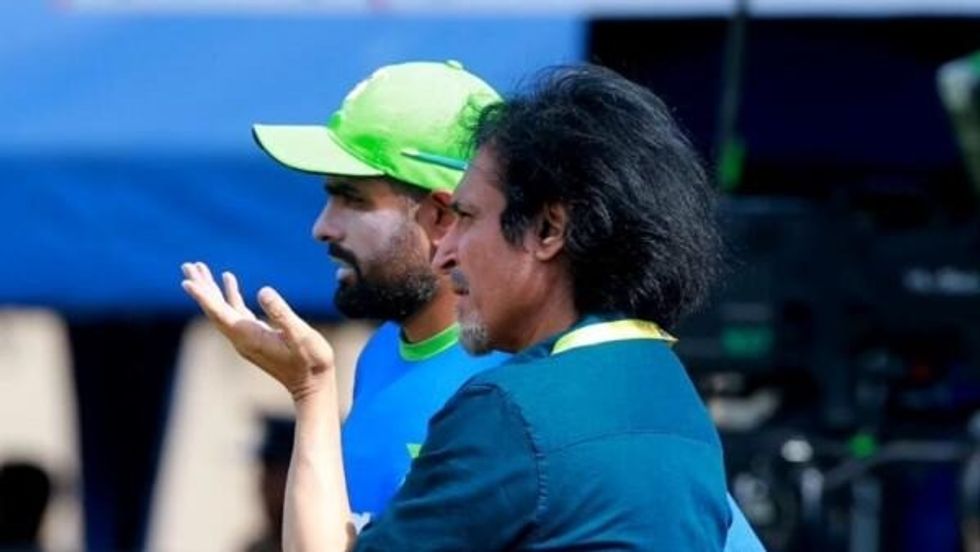


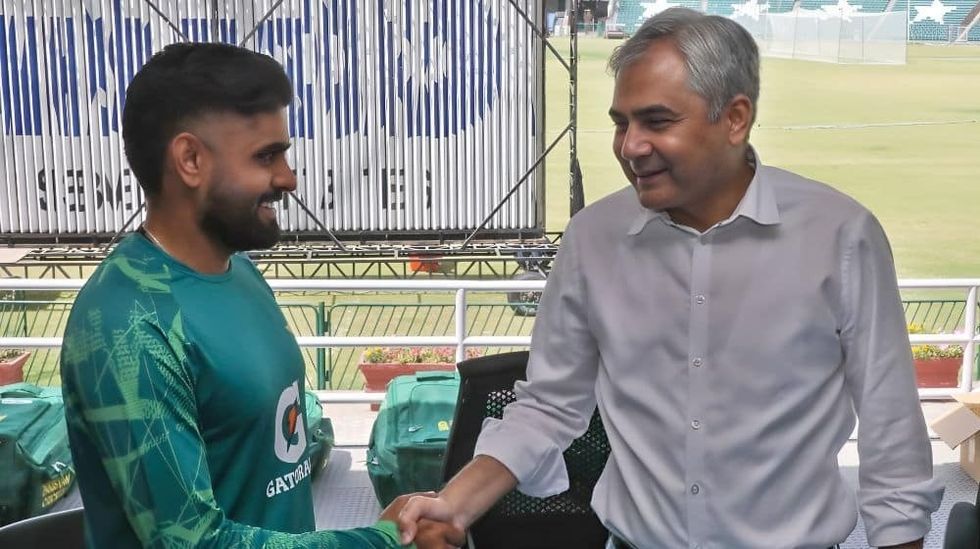
Our cricket board, however, is not the sole culprit. Additional, larger factors are also at play. Some of these are of our own making, and some come from beyond our borders. The Lahore terror attack of 2009 happened on Pakistani soil, right under the nose of our security agencies. It came in the middle of a countrywide terrorist insurgency and triggered a decade of cricketing exile for the national squad. Had the Sri Lankan team’s bus driver not shown extraordinary presence of mind, the unimaginable could have happened. This was completely on us, and it has left layers of damage both subtle and unsubtle. If your top players don’t have the opportunity to sparkle at Pakistani venues for season upon season, it’s bound to leave you out of sorts.
Time to make cricketing peace with India?
And then there’s the elephant in the room, namely our problematic association with India. In the overall scheme of things, this poses probably the toughest problem of all. It’s a relationship that oscillates between tolerable and frosty at the best of times; at present, it is positively hostile.
There’s little point trying to unravel this Gordian knot, weighed down as it is by centuries of emotional baggage. We simply have to accept that India, the most powerful cricketing nation on Earth, is hell-bent on sidelining us.
With little leverage in the matter, we have no option but to weather the storm as best we can. While our players remain excluded from Indian Premier League (the cricket world’s richest domestic circuit), we can but smile bravely and make the most of Pakistan Super League, a comparatively watered-down version. And while India steadfastly refuses to play in Pakistan despite peace having returned to our land and the likes of Australia, England, New Zealand and South Africa having visited in the last few years, we are forced to behave and go with the flow, because doing otherwise would only marginalize us further.
Give the players a break!
As for the millions of Pakistan cricket fans, it certainly wouldn’t hurt if they could occasionally give their team a little break.
Over the years, we seem to have developed an unforgiving intolerance to defeat. This is not a healthy way to follow a sport. We act as if the only team in the contest is ours, ignoring the existence of a competitor. Hence the illogical expectation that victory should be inevitable and perpetual. I know many of us like to say it’s not so much about winning or losing, it’s really about playing the game well. But to us Pakistanis, this outlook is a myth.
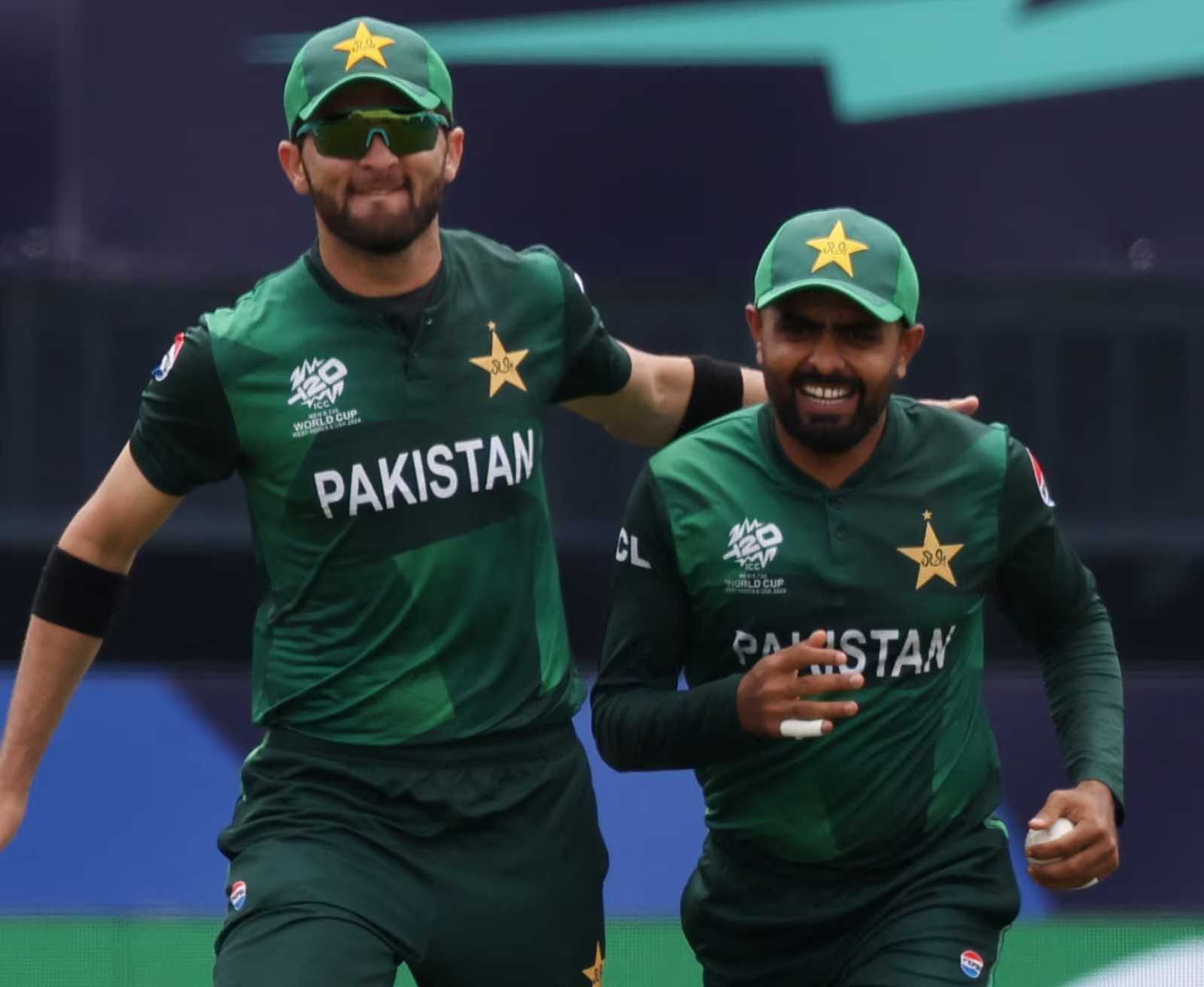
What makes this scenario particularly challenging is that, in today’s social media age, anyone can add some voice to the cacophony. After any cricketing loss for Pakistan, you can see pretty much everybody going bananas. Wouldn’t it be nice if we could all be a bit less theatrical and a bit more mature about it? A little less pressure on the players could go a long way.
Nevertheless, despite all these various adversities, I still find reason to be optimistic. Our robust cricketing ethos possesses all the fundamental ingredients to not merely bounce back, but to do it in style. Cricket is Pakistan’s alpha sport and an important source of national pride and self-esteem. Neither is there any shortage of resources, as our cricket board is flush with cash. Over the years we have produced some truly heroic role models, and our teams have achieved much greatness and glory. So yes, it’s been done before, and it can surely be done again.
The recipe to sort out the mess might not be straightforward, but neither is it terribly complicated. Make the PCB chief an elected position accountable to regional cricket associations; instill a culture of integrity and merit; pour money into infrastructure and facilities; bide your time and don’t overreact with India; and take defeats in stride. If these pieces were to fall in place, so too will our cricketing future.
Dr Saad Shafqat is Professor of Neurology at Aga Khan University, in addition to being a published author, cricket columnist, and novelist. He has co-written Cutting Edge, the autobiography of Javed Miandad, published in 2003. His novel Breath of Death, a medical thriller, appeared in 2013.







Comments
See what people are discussing